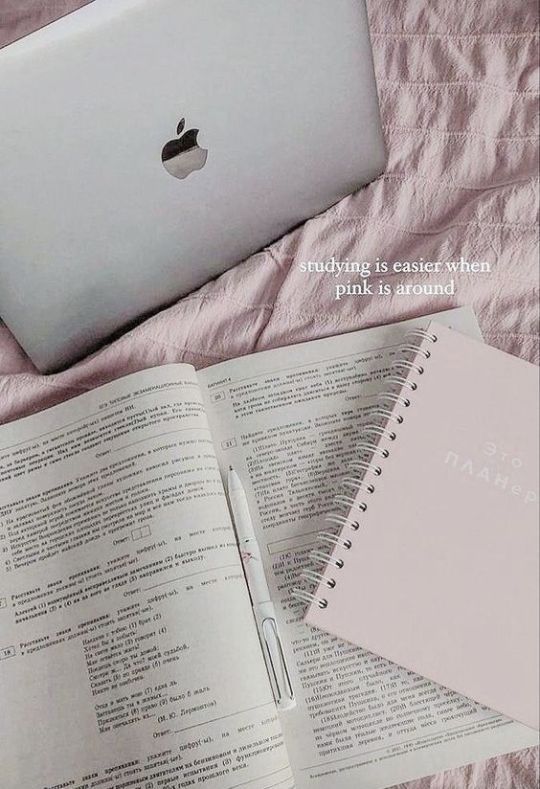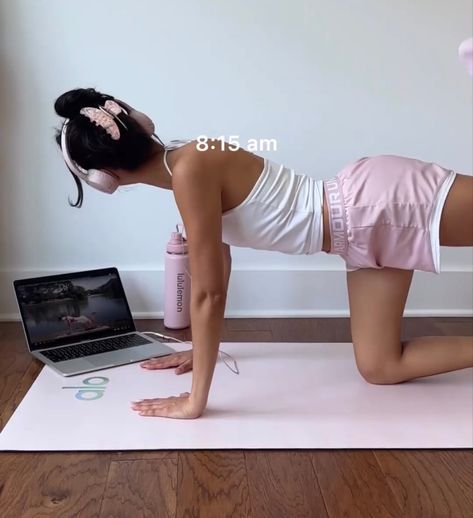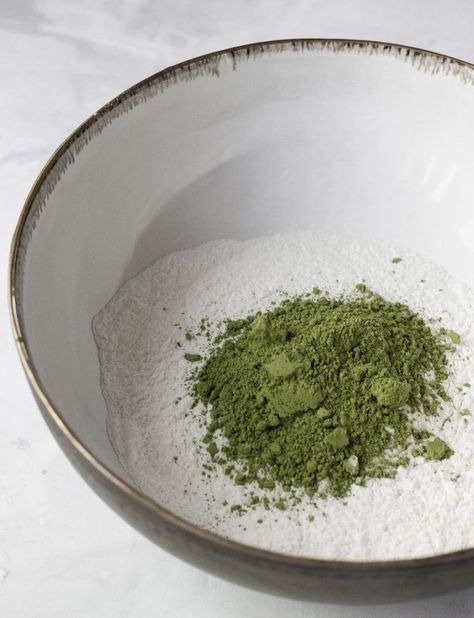#growth habit
Text
My Review of Decurrent Trees
Just because it’s winter doesn’t mean there aren’t plenty of plants to look at. Deciduous trees and shrubs become particularly interesting during the winter months with their exposed branches and their growth habits made more obvious. The beauty of a tree’s “skeletal” structure is revealed when it’s stripped of its leaves and set against a winter sky. Winter is also a great time to prune certain…

View On WordPress
#branches#Colin Tudge#dawn redwood#decurrent#excurrent#golden rain tree#growth habit#Malus#oak#pruning#reviews and recommendations#seasonal interest#Trees#trees and shrubs#urban horticulture#winter#Winter Botany#winter interest
7 notes
·
View notes
Note
do *you* think with your dick?
I think with my packer
#(yes)#(i have actually gotten into the habit of calling my bottom growth a dick/tdick)#(feels validating. especially bc i dont have the money for phallo)#spitblaze says things#ftm#doin numbers
68K notes
·
View notes
Text
Brainwash yourself with good habits. You need to do it the way you would train a dog - fetch the stick and get a treat.
I love listening to music but I also wanted to start listening to podcasts. I have to go to work everyday, and I prefer to drive myself to work and back.
I know that if I make myself listen to podcasts both drives, the habit will last not more than 3 days.
But if I make myself listen to a podcast on the way to work; and listen to my favourite music on the way back home to de-stress and relax; now that’s a healthy compromise. And it works for the long term.
The same goes with social media. I deleted all social media from my phone. I don’t have Facebook, Instagram, or even tumblr on my phone. The YouTube account that I keep on my phone has been very consciously kept; I only allow the algorithm to show me educational stuff like podcasts, history videos, news, psychology, stuff like that. Absolutely no entertainment. I keep all my social media (and my “fun” YouTube account which is basically Korean mukbangs and all sorts of useless beauty hauls that I honestly love to watch) on another device - my iPad, which I use for work. I check out what’s happening on tumblr or YouTube or Pinterest when it’s my lunch break or a coffee break. That’s another healthy compromise that works for me.
Going cold turkey with anything - stopping something addictive like smoking or drinking or suddenly starting a plethora of new habits- doesn’t work. You’ve restricted your mind and body so much that you keep remember the good old days where you drank like a whale and sat on the couch watching rubbish and you glamorise, romanticise and reminisce those times. Now you’re in that dangerous red zone where you know that if you see that bottle or the packet of chips, your body is going to reach for it before your mind can intervene.
Aim for long-term, sustainable albeit small habits, rather than complex overnight habits.
#c suite#powerful woman#strong women#ceo aesthetic#personal growth#that girl#productivity#getting your life together#balance#habits#sustainable#how to be disciplined#discipline#inconsistency#Social media#social media detox
2K notes
·
View notes
Text
become a disciplined person easily


it's not that you are lazy or don't know how to do it, you just don't know how to organize your time well, stop telling yourself that you don't have discipline or that's for other people and take action now!
start by organizing your current life
what are my goals? what would be my ideal routine? where can i start? what habits are stealing my time or are harmful to me? am i satisfied with my current life? what should i improve? what can i do now to improve?
after answering these questions yourself and having a clearer idea of what you want, write down your short-term goals (for example to become more disciplined in one month by creating small routines) and start organizing yourself, again ask yourself, what can i change right now?
and for sure you can improve many things, you can start exercising, have a day and night skincare routine, go for a walk every day, write a diary, whatever you want!
and propose to do these new things for at least a week every day, take it as a challenge, even if it is 10 minutes a day, but make a space in your agenda for this new thing you want to start, this is how you will start to create a discipline.
find your motivation
what are the long and short-term benefits you will get when you start this habit or routine? how will you feel when you get what you want, no matter how small? what improvements will there be in your life during and after this?
little by little
as i explained before you can take this as a small challenge, choose a new "harder" habit and another smaller one like drinking water several times a day, and to remind you of this you can carry a bottle of water with you (and i recommend this habit to everyone).
if you want to start exercising and you always end up leaving it, propose to yourself the challenge of doing every day 10 minutes for a week and this way you will get used to it (it can be any task that you want to incorporate to your life) and enjoy the process, write or talk to someone how you feel, it may be hard at first but you have to get used to it, do not put too much effort during the first week, maybe there are days that you do not feel like it, but remember better little than nothing, but remember always do it for your well being and improvement, that is the biggest reason you will find.
it can also help you to keep a record of what you do during the day, you can write it down or use an app called daylio, by seeing your progress will keep you motivated.d
some ideas to train your discipline
wake up one hour earlier than usual and go to sleep one hour earlier
organize yourself every day with a planner as soon as you wake up
know your goals for the day
control the time you spend on social media or watching tv
don't give up!
after you have achieved your goal, for example, to lose weight, don't give up the habits you created, you have to keep them in your life so you have to create a routine that suits you and makes you feel happy and motivated at the same time.
you will always have more goals to achieve.
when you create a routine and a plan of action everything will be much easier for you.
#that girl#green juice girl#pink pilates princess#clean girl#dream body#dream girl#dream life#self esteem#self worth#self improvement#self growth#self care#levelup#leveling up#level up journey#high value mindset#high value woman#high maintenance#habits#health and wellness#healthy#healthy living#self healing#healthy lifestyle#healthy life tips#self concept#self confidence#self development#self concept affirmations
7K notes
·
View notes
Text
de-stressing



introduction:
the first step to handling how you feel is finding the root of it. these can be things that're in your control- things you can change to solve the problem, or things that're outside of your control and that you can't affect. the first step is making a list of what's in your control and outside of it so that you can approach your feelings.
in your control:
accept how you feel. acknowledge that you feel stressed, and instead of trying to force happiness on yourself, try to think about how you can deal with your stress in a productive way. (getting to the root of the problem).
make a to-do list. make a to-do list of everything you need to get done, and a list of everything stressing you out. once you know what to do you need to then think about how you're going to do it.
break it up into daily steps. the next step is making little changes in your daily routine to get things done. when i was stressed about my permit test i just scheduled it a few weeks an advance and spent 20 minutes every night studying for it.
clean your room. another good thing to do is just cleaning up your environment. it really does make a difference for how you feel, and also i find it feels really good once your room is cleaned up.
developing new habits. i've started sewing a little bit each day as well as studying everyday. these habits make me feel good- i don't get as stressed about school or stressed about not sewing.
outside of your control:
vent journal. when there's nothing you can do about a situation just write down all your negative thoughts.
support. after you've written down all your negative feelings and understand how you feel, talk to someone that you trust. make sure that it's the right time though, like ask them if it's a good time to vent.
find people who feel the same way. this is sort of the same as the point above, but for example, i was really upset just thinking about the world and how so much suffering is always going on- and i found article after article with tips on how to be happy even when things in the world are bad. sometimes it feels good just to know that there's so many people in the world who feel the way you do.
conclusion:
stress is a normal part of everyone's life, it's an emotion we all feel time to time, and something we all go through. the key is knowing how to deal with it, and how to feel better despite the things that're stressing you. if you feel like your stress/anxiety is something that you can' manage on your own then i hope you can get the help that you need :)
#that girl#that girl 2023#self improvement#pink pilates princess#cinnamon girl#queenofcoquette#self growth#self love#healthy habits
940 notes
·
View notes
Text
11 Lessons from the book Atomic Habits 🌟
"Atomic Habits" focuses on incorporating small, consistent habits into our lives to bring about significant change over time. The book introduces a four-step model for building habits, emphasizing cues, cravings, responses, and rewards. It also guides you in overcoming bad habits and self-limiting beliefs, demonstrating how simple habits can lead to substantial progress toward our goals.
Lesson 1: Habits Over Hobbies: You are not inherently bad at your hobbies. Instead, it's the lack of consistent habits that has held you back.
Lesson 2: Identity Matters: Our self-image greatly influences our habits. While it's important, you shouldn't let it hinder your growth.
Lesson 3: Stacking Habits: The concept of habit stacking involves adding a new behavior to an existing habit, which can help you build a more effective morning routine.
Lesson 4: Embrace the System: Rather than solely focusing on goals, it's important to love the process—the journey itself. It's about embracing the system that leads to progress.
Lesson 5: Something is Better Than Nothing: Even small efforts are valuable. The "Two-Minute Rule" encourages starting new habits that take less than two minutes.
Lesson 6: Overcoming Boredom: Staying motivated in habits requires keeping them interesting and within the right level of challenge. "The Goldilocks Rule" emphasizes that tasks on the edge of our abilities are most motivating. Habits won't always be exciting, and that's okay.
Lesson 7: Bouncing Back from Misses: Missing a habit occasionally is normal, but missing it twice can turn into a new habit. The key is to rebound quickly, maintaining the compound gains from previous good days.
Lesson 8: Shaping Your Potential: Our genes affect what we're good at and the chances we get. Instead of feeling stuck by genes, we should use our strengths. Special traits are like superpowers. Questions in the chapter help us find what we care about. Quotes remind us to focus on self-improvement, not comparing. Genes alone don't bring success; effort matters. Genes give hints, but we shape our success by using our strengths.
Lesson 9: Creating a Supportive Environment: Our surroundings are important. If we change our environment to match the habits we want, we're more likely to succeed. By setting up our space to help our habits, we can make good habits easier. People often limit themselves by thinking they can't do better. He also says that just luck doesn't explain success – hard work does. Whether it's moving stuff around or using visual reminders, these changes can really help us succeed in the long run.
Lesson 10: Creating or Breaking Habits: The Four Steps
These four steps are the foundation upon which many of his ideas are built. They are not only applicable to creating positive habits but also to breaking negative ones.
Cue: This is the trigger that initiates a behavior. It can be a specific time, location, emotional state, or preceding action that prompts your brain to start a habit.
Craving: Craving is the motivation or desire behind a habit. It's the feeling that drives you to engage in the behavior triggered by the cue. It's important to understand the underlying craving to effectively change a habit.
Response: Response refers to the actual behavior that you perform as a result of the cue and craving. This is the action that you take in response to the trigger and motivation.
Reward: Rewards are the positive outcomes or feelings that you associate with completing the habit. They reinforce the habit loop by making you more likely to repeat the behavior in the future.
He explains that these four steps form a habit loop, where each step is interconnected. The loop starts with a cue, followed by craving, which leads to a response, and ultimately ends with a reward. If any part of this loop isn't satisfying, the habit is less likely to stick.
Lesson 11: Success is a product of daily habits and overnight success is not overnight:
Success is not a result of overnight transformations but is instead rooted in the daily habits we cultivate. By recognizing the power of consistent, incremental actions, we can build a solid foundation for lasting success. This perspective challenges the allure of instant success and encourages us to focus on the journey of continuous improvement through daily habits.
#atomic habits#james clear#best seller books#bookshelf#booksbooksbooks#personal improvement#personal development#habits#personal growth#self improvement#self help#self awareness#self love
1K notes
·
View notes
Text
I completely let go of myself after finals so here is a list of things I implemented into my day to day life this month:



Intermittent fasting: I’m currently doing 20/4 having a smoothie or some kind of protein drink as a snack to end fasting, doing a workout and then having a large meal and fruits and oats as desert. Then I start fasting again, it works for me because my eating behaviour was out of hand
Nutrition: I cut meat and sugar. I‘m making cheat days on special occasions like birthday gatherings, etc. but mostly I’m eating veggies, high protein and high fiber.
Hydration: drinking 2 liters of water, tea and some black coffee in the morning every day. No soda, no milk, nothing
No addictive substances: no alcohol, no smoke. Trying to reduce technology aswell.
Fitness: workouts, stretching, yoga, Pilates, running, swimming, bicycling, volleyball. I try to be active everyday at least for 20 minutes. I‘m extending the time when i‘m fitter.
Mindfulness: journaling, reading, meditation or listening to podcast. You gotta keep growing through outside inputs.
Beauty: taking care of my look and my outer appearance. My skin, hair and nails are clean. My apartment and car are clean. I cherish and take care of myself and the things I own.
Love: spending time and giving love to my family and my closest friends. Making time for them and showing effort.

I’m currently on my second week and most days I’m feeling great. I‘m still not happy with my workout schedule but next week I got a buddy who‘ll help me get better and fitter and I’m looking forward to it.
Things I want to change, but didn‘t had time yet:
Applying for a new and better job
Having a creative hobby (drawing or writing)
More character improvement
#that girl#self care#clean girl#green juice girl#pink pilates princess#routine#it girl#feminine energy#habits#ellejos#mindfulness#growth#personal growth#personal development#change#june 2023
2K notes
·
View notes
Text
Your intuition is your inner compass. Follow it without regret.
#femme fatale#femmefatale#dark feminine energy#dark femininity#it girl#dream girl#queen energy#success mindset#successhabits#loa success#personal growth#high value woman#higher self#high value mindset#female excellence#female power#femmefatalevibe#healthy habits#healthylifestyle#self improvement#level up#girlblogging#glow up#that girl#female entrepreneurs
2K notes
·
View notes
Note
Hey i just wanna ask since your blog is really helpful, can you give me some advice on how to stop being lazy or how to be more productive? This have been a problem since i was little and im telling you i wanna make it stop



HOW TO EXIT YOUR LAZY GIRL ERA
LAZINESS IS NOT AN ACTION, BUT A MINDSET. If you are truly committed, disciplined and motivated, you will have no problems achieving your goals and being productive. So, no negative self-talk & a limiting mindset only holds you back.
EAT THE FROG OR CHICK
Eating the frog refers to doing the hardest task on your to-do list first to get in your productivity flow and conquer your to-do list easily.
Or, what I prefer, is eating the chick(s). Doing the small impact tasks first gives you enough confidence to do your harder tasks. Eat the one you prefer!
FIGURE OUT THE REAL ISSUE. Is this a task you hate? Then make it enjoyable for yourself. Afraid of failing? Expect yourself to fail. Is it overwhelming? Then only do a fraction of the task. Find a solution.
DON’T LIMIT YOURSELF TO TIME. Avoid timing yourself or giving yourself a time limit. Just do your tasks without worrying about time, even if you run out, you’ve still been productive.
SET YOUR ENVIRONMENT FOR SUCCESS. Lay out everything that you have to do, minimise common distractions and remove anything that makes you feel anything but productive.
MAKE THE TRANSITION EASY, from non-productive to productive. Ensure that you have a customised ritual before being productive, have a particular time to start being productive and have a specific place where you are productive.
AVOID PERFECTION. It doesn’t matter if your tasks aren’t achieved at a high standard, but if you commit to just doing it, that consistency provides more growth and helps to do that same task again.
PLAN YOUR DAY, PROPERLY. Don’t be vague when planning. Outline what you need to do for each task, because when we know what we have to do, it seems more achievable and less out of reach.
BALANCE IS KEY. Taking breaks, eating healthy meals throughout and getting the blood flowing increases our productivity. Please, do not overexert yourself to be productive.
#becoming that girl#clean girl#green juice girl#improve productivity#productivityboost#self improvement#productivity#being productive#lazy girl era#that girl routine#habits#mindset#self help#self healing#self care#self growth#personal development#personal growth#that girl lifestyle#that girl#that girl energy#glow up#glow up era#healthy living#it girl#it girl energy#it girl tips#becoming her#positive mindset#growth mindset
601 notes
·
View notes
Text
All you have to do is to do what you said you’d do. Getting the body you want is 15 minutes a day. Learning a new language is 30 minutes a day. Reading is 10 minutes a day. All you have to do is to convince yourself, everything else will fall like dominoes.
#level up#glow up#selfcare#skincare#health#glowup#self esteem#life#self improvement#body goals#self love#future self#higher self#self growth#self confidence#self awareness#self care#life goals#goals#habits
224 notes
·
View notes
Text
Habits that changed my life for the better
I stopped joking about myself. It was mostly about suicide jokes (it was a decision that I made after the worst moment of my journey with depression, if I can call it that), but, really, it's about all self-deprecating stuff. It may be just jokes, but it stays in your brain.
Positive attitude. It's similar to manifestation, in a way, but in a... down to earth way, I guess. Thinking positively about stuff changes everything for me. Almost everything is simpler.
I deleted Twitter. It may be a different social media for everyone, of course - now probably TikTok for most - but, well, Twitter was where I spent long hours everyday. I started taking breaks from it about a year and a half ago and deleted it in August. It was hard - I loved the community there and I miss the daily updates from my fav fandoms, but it's for the best. I still can't explain how Twitter affected me but I do feel better since I stopped spending so much time there.
Taking vitamins. I didn't think it would really make a difference but it definitely did. The biggest surprise for me was vitamin C - my immune system has improved super quickly when I started supplementing it. I didn't even realise how bad it was before. Other than that, I take B complex, A+E (hair, skin), and iron (i tend to have a deficiency of it). (& D when it's winter).
Having a consistent skin care routine. It's calming and both doing the routine and seeing the effects make me feel better. (I do realise that many people have more demanding skin than me and searching for the right products can be frustrating and expensive. I'm just talking about my experience).
Other things that I think are worth mentioning:
Therapy - just a short explanation that I've been on therapy (with breaks) for about 6 years now. I've had social anxiety for most of my life, now still struggle with depression (and amnesia, actually) a bit, but what I wanted to mention here is that I learned a lot from it. It's obvious, but I just think it's important to pinpoint that I did not just learn how to think more positively and love myself by myself.
Exercising! - I still struggle to make it a habit, but when I actually do exercise regularly (I do pilates), I really feel better. It's worth it.
Hydration - same with drinking water. I really don't think I have to explain it in any way lol.
#habits#self care#self care tips#self love#daily habits#healing#growth#wellness#text post#it girl#that girl#health#self improvement#self development#this post has been waiting in my drafts for a while now and i thought that i'll finally publish it
350 notes
·
View notes
Text
The secret to create healthy habits.
Motivation > discipline > consistency > habits. That's the process from start to finish, for changing your life around with healthy choices.
Motivation is only the launchpad to start with, after that you can't rely on it because it comes and goes on a whim! A lot of people make the mistake on relying on it all throughout, and then wonder why they can't stay on track while other people do.
What you need next is discipline: when you commit to something and stick to it even when it's hard, even when you don't feel like it, because that's how you fill the gaps inbetween to create a routine.
And you create a routine by staying consistent. Today, tomorrow, again and again.
When you stay consistent over months, over half a year, it becomes a habit, and when something becomes a habit, it's effortless to keep going because that is now your default setting. It becomes your new normal, the choice that comes easiest to make because you don't even have to make it or think it; you just lean back into it.
Going to the gym regularly becomes like having a meal; if you don't do it, you'll feel restless and off, genuinely craving the movement and the boost of endorphins. When you eat healthy regularly, you feel it right away if you get off track and indulge in too many treats: you'll feel it in your body, in your mental clarity, in your emotional wellbeing and it's so much easier getting back on track because healthy is your new default.
#level up#that girl#growth mindset#high value woman#healthy habits#glow up#motivation#i discussed this with my trainer and he said it's completely on point with his 10-15 yrs of experience#discipline#consistency#writings#articles#gym#exercise#lumen's diary
4K notes
·
View notes
Text
The Conditions of Change
When adults seek change, they often focus on the intended result while hurrying through the practice. However, growth requires a bit more than 'just trying something out'. Here are some tips to help bring change upon your life, good luck!
Consistency
Real change, especially as an adult, requires many, many repetitions of a behavior or movement or position. 'Trying hard' is usually counterproductive as it tenses the muscles and the emotions. It is necessary to let the exercise or method work without undue ego participation over time. The practice has to become, for a time, 'just what one does.'
Willingness
The practices that change long standing blocks will usually seem, when presented to an adult learner, to be too subtle, too corny, not relevant, and mostly downright wrong. One must be willing to really try something different if one is at the point where one's own ideas have failed. Of course, discernment cannot be completely disposed of, but if a learner wants what another person has, they must be willing to do what that person did, however unnecessary or stupid it seems.
Sustainability
So often adult learners hurl themselves into an activity, and neglect other aspects of their lives. Soon they end up dropping the practice and rarely get back to it. A good practice must be one that can be 'what one does' for a good while. Immersion approaches exist, for example a 30 day retreat, but then carryover to one's regular life becomes the issue.
First Things First (Urgent Things Second)
In our over-busy, over-booked lives, if we wait for a 'free moment' to practice something, it invariably never arrives. To have consistency with a new practice it is necessary to make it a priority and see that it gets done first, leaving less important things, even if more urgent, to 'scroll off the screen'
The Plateau is Where the Work Starts
All people have latent abilities that come online easily and quickly when they start a practice (often called newbie or 'noob' gains). But once the latent abilities are developed and the participant is working to develop brand new capacities, the going is much much slower. This is where the large majority quit, discouraged, but this is where the work really is beginning.
Anticipate Anxiety
Real change even in small amounts will cause anxiety, which can be insidious and hard to attribute to the new practice. In an uncanny way, impulses to start something incompatible with the new practice, or new worries, confusion, or minor injuries will threaten to derail the change process. Barring gross demonstrable harm, the need is to 'stay the course!'
Don't Look to Validation or Approval
If another person is the reason to do something, in a moment they can become the reason not to. When a practice is undertaken to please someone (and yes this can be unconscious or semi-conscious) there are two big barriers: 1) effort gets substituted for the fruits of the practice, and the practice gets or stays sloppy because even sloppy practice shows effort, and 2) the instinct for autonomy (buried itself in some measure in the unconscious) will cause resistance
Frequent self-measurement is unhelpful
When one has undergone real change others will point it out, don't worry. Trying to get one's inner judge to validate oneself takes attention off the practice, apart from any concern that self-measurement will not be accurate.
The Placebo Effect is Not the Effect
Whenever one takes on a new promising practice there is going to be an immediate sense of elation. There is nothing wrong with enjoying this, but know that 1) it wears out in two to six weeks, 2) the real beneficial effect of the practice will be much more subtle at first then this elation, and take months or years to manifest. Many believe that when the elation stops, it means the practice has stopped working.
Understand the Difference Between Almost Nothing Happening and Actually Nothing Happening
When a ten-year-old wakes up in the morning no one notices a change in size from the night before, but actually there is, and over the course of years, that becomes very apparent. Real growth is like that, in that, almost nothing is happening. But with any practice, participants may worry that they are following a dead end. While some discernment and critical thinking may be needed in selecting a practice, once started attention should be focused on the actually practice, with some faith that results will come.
Work With Others
When working alone, long-standing defensive patterns can undermine the intended practice or even turn it into its opposite. Not that any growth practice is like an Olympic sport calling for perfect performance--one is simply seeking to stay in the 'stretch zone' or 'edge'. Other people, either peers or coaches can help with that by supplying explicit or implicit feedback. Not because they are know everything, but because they have gone or are going down the same path, and are more objective about you ('a different set of eyes').
Find Where You Are and Work From There
Don't try to work from where you want to be, that will be slower not quicker. This is about acceptance, a prerequisite for change
The Tightrope is an Illusion
When in new experiential territory, it can seem that the practice being encouraged will either quickly fall into a pitfall at one end, or into the opposite pitfall. There is no happy middle envisionable. This is just a lack of experience. For an experienced aerialist, the rope has come to appear like a sidewalk.
Don't Get Stuck in Inspiration
Inspiration, such as from most self-improvement materials and forums provides temporary elation by itself and therefore can become a habit. But nothing changes from inspiration. Slightly more important is turning inspiration into intention, definitely more important is turning intention into action, and absolutely more important is turning action into consistency.
There is No Such Thing as 'Ready'
Change is made by starting to work where you are with the tools at hand. In time, other tools will come to hand. The feeling of 'ready' does happen in life, but it has to do with situations already mastered. Also where aggression, anger, or desire is mobilized, the feeling of ready is not relevant.
Change is More About Unlearning than Learning
Here is what often happens: a man or woman wants to change a pattern so they focus directly on it and have initial success doing something different. Then they focus on other things, thinking the change is in the bag. The unwanted pattern comes back! The learner despairs that they cannot learn. Actually, the unwanted pattern was never gone (yet) it was just suppressed. It takes a longish trail of resuppression and practicing new habits until new practices become dominant.
Don't Make Effort the Focus
Many adolescent and adult learners have grown up in invalidating, emotionally treacherous environments where they could never be sure that their choices and criticisms wouldn't be attacked. This can lead to a over-emphasis of effort as a universally defensible good--remember the saying "You can't blame a guy for trying." But effort, increases arousal and tightens muscles, and strongly undermines some areas of change like breathing, relaxation, meditation, flexibility, and social skills. Of course with 'zero effort' nothing will change but effort should not be the focus.
Make Distractions and Irritants Part of the Practice
Everyone has had an experience of finding a quiet place, preparing to meditate or stretch, and BAM!, a loud sound like a leaf lower erupts. Or for nice guys they might have guilt at doing something 'selfish'. There is a temptation to wait to a better time, which often becomes never. Our ego fears we will do something badly! But the truth is, anything that cultivates growth will be done, at best, badly (really just imperfectly). Doing something even less perfectly is just as good, or greater an opportunity for self awareness as doing something just imperfectly. Awareness, attention, and mindfulness is increased.
The Rubber Band Effect
When we push against a homeostatic system, even one with a unhappy 'set-point', the system pushes back. To succeed, of course consistency and perseverance is necessary, but on occasion, several interventions need to be brought to bear simultaneously to reach a threshhold where the homeostatic set point is 'flipped', or reset.
#life#therapy#life advice#advice#life changing habits#things can change#changed#change#be the change#self growth#personal growth#personal development#self worth#self help#self esteem#self awareness#self improvement#self efficacy#believeinyourself#self development#self change#self healing#work in progress#tips and tricks#self evolution#self empowerment#i thought you should know
1K notes
·
View notes
Text


I never did share my last year’s piece, did I —? Better late than never! Here’s two for one Anniversary! 💐 2022 / 2023
There’s a million things I could say about Smile For Me and the effect it’s had on me these past four years — mentally, artistically, socially — but I’m never good at words, and I hope these can express those emotions instead! Thank you all for being the coolest community I’ve ever joined, I’m so happy I met you all! 💕
Links for 2022 Zine / 2023 Zine :-)
#btw!! this isn’t meant to be a growth comparison - I use both paint and line styles! just thought I’d share both at the same time :-) ❤️❤️❤️#smile for me game#smile for me#dr habit#lil’ habby#Pabit#borbra luddington#questionette#my art
310 notes
·
View notes
Text
stoic ideas that will improve your life


✨ what is stoicism?
stoicism is a philosophy that seeks to cultivate virtue, reason, and mindfulness through our will and discipline.
practicing stoicism means accepting reality as it is without trying to change it. it means accepting that we cannot control everything in our lives, but that we can control how we react to the things that happen around us.
✨ some benefits
improvement of our mental health.
increased ability to concentrate, and clarity of thought.
better self-control to resist the desire and distractions of others.
✨ stoic ideas to improve your life
live in the present moment, do not leave anything for later. value what you have, and take care of your company.
recognize your mistakes. work on your areas of improvement. making mistakes is not important, it is important to rectify them, look for solutions and work on continuous improvement, learn from each mistake made.
we humans are not so different, we share feelings and emotions. we are all part of the same essence. practicing empathy is healthy.
nothing is good or bad. the important thing is not what happens to us, which is inevitable and neutral, but how we interpret and deal with each situation. it is a matter of perspective. what happens is right. the important thing is to understand, using reason, to find out what we can do and to accept without resistance what does not depend on us.
anything can happen, but if it hasn't happened, don't get ahead of yourself and don't anticipate pain that may not come.
writing a diary. according to the stoics, it is a good habit to dedicate some time each day to reflect in writing, which helps to reflect on the actions of each day and to be more vigilant with ourselves.
contact with nature. breathing fresh air, walking in the environment, enjoying the outdoors and getting in touch with ourselves is an effective way to quiet the mind.
work every day, build slowly. don't procrastinate.
we need very little. we have much more than we need, we do and say more than we need to. it would be good to question this, we would have more time for what is essential and more peace of mind. eliminate what is not necessary.
just because things don't go your way doesn't mean they go wrong. find a learning experience in every experience you think is negative. in reality, it is not. the negative is your attitude and you can change it. don't waste your experiences.
i am learning about this philosophy and many others. the smart thing to do is to keep what we can apply to our life to improve it. if there is something you don't agree with, discard it and keep what resonates with you.
#that girl#green juice girl#pink pilates princess#clean girl#dream body#dream girl#dream life#self esteem#self worth#self improvement#self growth#self care#levelup#leveling up#level up journey#high value mindset#high value woman#high maintenance#habits#health and wellness#healthy#healthy living#self healing#healthy lifestyle#healthy life tips#self concept#self confidence#self development#self concept affirmations#stoicism
2K notes
·
View notes
Text
STOP DOING THESE 6 THINGS ON YOUR LEVEL-UP JOURNEY


Many things can hinder your level-up and femininity journey. If you are serious about levelling up, here are 6 things you need to stop doing on your journey.
Focusing So Much On Your Outward Appearance And Forgetting To Work On The Inside:
Most of the time, we focus on our outward appearance without considering our internal well-being. It's fun to spend money buying new clothes, trying new hairstyles, getting our nails down and playing around with makeup, and it is important to spend time levelling up our outward appearance, but it can't be the only thing you work on if you truly want to level up. You need to spend time working on things like building your self-esteem, learning to communicate better with others, learning how to handle your emotions in healthy ways, working on your manners and building healthy relationships with friends, family and your significant other.
Needing External Validation:
As you go along on your level-up journey you must let go of your need for external validation. External validation is when your feelings of self-worth are dependent on the approval of others. If you are looking for others' likes and comments on your Instagram posts to make you feel good about your outfit, hair or makeup, approval from your parents towards your life choices, or attention from men before you can feel like you are attractive and worthy of love, you need to learn how to self-validate. Get to know yourself. Learn what your values and goals are, and most importantly learn why these are your values and goals. On this level-up and femininity journey, you are going to meet a lot of people who don't understand or argue with you, so take the time to analyze why you seek validation and how you can let go of it.
Comparing Your Life And Journey To Others:
Stop comparing your life and level-up journey to others. We all move through life at different paces. It can be hard to see others accomplish the things you also want, especially when it seems like it came so easy for them when you try so hard. With social media, it's especially easy to fall into the trap of comparison. If you find yourself in this trap, take a step back from social media and focus on yourself. Spend time in gratitude and look back at what you have been able to accomplish and how far you have come.
Chasing Perfection:
Stop trying to be as perfect as possible. If you are on your level-up journey you don't have to strive to be the perfect woman. You don't have to always be perfect, have the perfect outfits, hair, makeup, and attitude. It's ok to be human and make mistakes sometimes.
Self-Doubt:
Stop doubting yourself and your abilities. If you want to level up you need to believe that you can do so. Self-doubt leads to insecurity and will keep you stuck in the same place you are trying to get out of. You need to let go of your past mistakes, your fear of failure and comparison if you want to be able to really let go of your self-doubt.
Feeling Guilty For Working On Yourself:
Stop feeling bad for working on yourself. You may need to turn people down, step back from relationships with certain friends or family members or even spend more time for yourself well on this journey. You must know that it is ok and important for you to take time for yourself and set any boundaries you need to guard your mind, heart and spirit. So don't feel guilty about that.
Want posts on Levelling up? Click here!
Want posts on Femininity? Click here!
Want posts on Wellness? Click here!
Book a 1-1 Girl chat with me! Click here!
We Just created a mailling list! Get notified about exclusive content + Free level up PDF checklist!
Click the Link here to view✨
#clean girl#cleancore#green juice girl#that girl#pink pilates princess#dream body#dream girl#dream life#self esteem#self worth#self improvement#self growth#self care#levelup#leveling up#level up journey#high value mindset#high value woman#high maintenance#habits#healthy#healthy living#self healing#healthy lifestyle#self concept#self confidence#self development#self concept affirmations#femme fatale#levelling up
842 notes
·
View notes